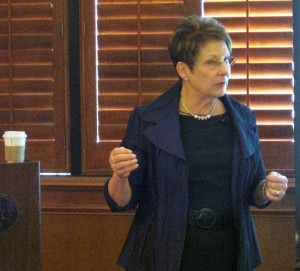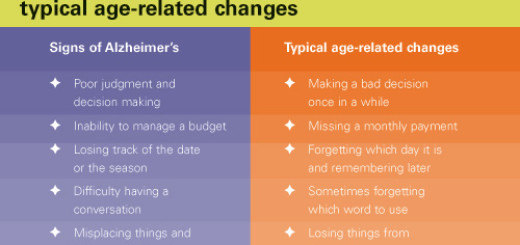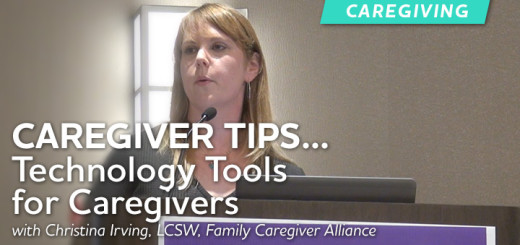Caregiver Survival Tips from Circle of Care

Elaine Sanchez speaks about caregiver survival at the Alzheimer’s Association 2012 Circle of Care conference
Sometimes caregivers feel like they are barely hanging in there! Author and caregiving guru Elaine Sanchez presented a few real world caregiver survival tips at our annual Circle of Care conference.
First, she advised adopting what she calls creative indifference, which is of not allowing yourself to become emotionally ravaged by the progression of the disease or events.
There are three basic steps to developing an attitude of creative indifference:
1.) Become AWARE of the specific issues that cause you the greatest amount of emotional stress – write it down;
2.) ACCEPT you are human and you are coping with situations that are complicated and extremely difficult to manage;
3.) ACT and take charge of the things you can change. Release things over which you have no power, influence or control.
“Make two choices: is there anything I can do to fix change or control this? If the answer is no, release it; if it’s yes, make a plan,” she said.
She also talks about what she calls the Four Horsemen of Caregiving: Anger, Guilt, Depression and Grief.
“Everybody gets angry! Anger is a normal and predictable response to circumstances we cannot control,” she said. “But – we all have huge hearts, couldn’t do this work if we didn’t care.”
She reminded us that it’s the disease that is in control of our loved ones – it’s the disease that is acting out. To manage your anger:
- Stay calm when they are not
- Create a safety net of family and friends
- Participate in art, music, dance
- Use adult day care
- Exercise
- Hit something!
- Seek counseling, talk to a therapist, clergy etc.
“Be present in the moment and release your attachment to who they used to be,” she said. “No matter what abilities they’ve lost they’re still capable of being loved.”
For more from Elaine about Anger, guilt, depression and grief and other caregiver survival tips, visit www.EKSanchez.com where you can access tip sheets, read her blog and more. And be sure to stay tuned for future Alzheimer’s Association conferences at our web site: www.alz.org/norcal.


















I have a question: Is it a good idea to keep the person with this illness in familiar surroungdings or take them on a weeks vacation where theyare not familiar with where they are. This person still knows her child who wants to take her on a trip but the patient cannot take care of herself enough to even bath herself and gets confussed sometimes even in her own home as to where she is.
Hi Paulette, you might consider calling our 24/7 Helpline 800.272.3900 to get some advice that is specific to your situation – cause really, it depends! Also, here’s a link to some general tips for traveling w/ someone with Alzheimer’s from alz.org that may be helpful: http://www.alz.org/care/alzheimers-dementia-and-traveling.asp
This summer I took my husband on an almost month long trip, with misgivings, but decided to try it. We mostly stayed with family and, while he was unfamiliar with their homes, to some extent, and definitely unfamiliar with hotels, he did very well. He is diagnosed with MCI but is sliding. I found that if we didn’t do too much in a day and if he had a chance to rest, he related well to the relatives. I was most thankful that we could take this trip. I did use usual things, like the dish I always use to put his pills morning and night, packed for him, and basically checked over every place we stayed to see if anything was left. Even with all that, we lost a shaver cord but mostly we had a great time.
MY WIFE HAS HAD THIS ILLNESS FOR AROPUND 6 YHEARS AND
ALL I CAN SAY IS, IT’S THE WORST LIVING ILLNESS ON THE PLANET
April 5, 2011Wow! I cannot tell you how many times I have wnated to hide behind the covers or how many situations I have faced with a pounding heart. Strangely enough, the situations that I really feared were never as bad as I thought they would be. And the situations which were really bad always took me so much by surprise that I didn’t have time to worry before acting.
Lots of research is being done to find out more about the causes of Alzheimer disease. There is no one reason why people get Alzheimer disease. Older people are more likely to get it, and the risk gets greater the older the person gets. For instance, the risk is higher for someone who is 85 than it is for someone who is 65. And women are more likely to get it than men. Thanks for the post!
December 9, 2009Yup I fit on both ends. I think that, on a day to day basis, kids do require more care, but on an ovarlel basis, sometimes it evens out. When my senior dad’s Parkinson’s Disease got worse and he was put on hospice that required round-the-clock care that the grandkids rarely need. So sometimes we can spend more time in short crisis spurts for our aging parents. Either way, it is nice to know we’re not alone. Thanks for the interesting article.
we don’t need that much. (I ve been fighting this since breofe I gave birth to our daughter. Can you transfer 180lb 5’11 man at 9mos pregnant? I had to.) The Geriatric Association is a fantastic resource but I can’t afford that.Being pregnant and having my husband’s accident at the same time..I didn’t get to choose career or home. (No regrets if asking..) But now per the LTD I’m not allowed to make a living.Because of what the LTD did my daughter and I had to give up health insurance so we could have more funds coming in the home. My respite breaks occur in minute time. Such as today when you’ve been seeing me write all day. My daughter and husband have been playing together all day so I write between their needs. I also got really lucky and there’s no laundry or dishes for me to do today. Everything else just got set aside. I guess you could say I’ve learned how to fit my me time in between life. But it would be fun to go out for lunch or dinner once in a while. I can’t do that because there’s no one who can come and cath my husband at those times. (Nursing charges $500 for four hours for that 10 minute item.)I do have hopes and desires I want a van for my husband to give us freedom to something silly like go out to dinner as family; I would love our daughter to be able to go to private school and me .I have a dream .there’s a major emergency preparedness conference in DC every year put out by the Office of Disability Integration and Coordination..they even have scholarships I’d love to go and finally meet and reunite with some of the people I know. In the meantime, my daughter and I took a small break only two minutes from our home and went to pet & feed horses. It was an awesome change of pace. We’ve been invited back.Contingency plan: I don’t have health insurance, or a LTD for myself. We do talk about disaster preparedness all the time and constantly strive to build onto our kit. Food, medical supplies, etc. Another dream I have is that there is a medical bracelet to ID Caregivers. I’d love to have that both for myself and my daughter in case something were to happen.If I’m sick, oh well I’m the back-up too!I did do a hand-out for National Preparedness Month down our street and added two sentences about my husband but there was no response. We do have two neighbors who check up with us every three or so. But as you see the book did comfort me as I have now realized that we are obviously already aware of many of the topics you touch on. Why isn’t this book handed out in hospitals to new carees??Good Awareness Article!!
March 23, 2011A caregiver with elretnmaey age children or younger would be a deal breaker for several reasons. First, there is too much chance that they will bring illnesses from school, through children, to my mom. Secondly and probably most relevant, is that I would not feel like I could count on them to be dependable, because I would likely be at the mercy of the mom needing off dur to of all of the children’s illnesses, school meetings, babysitting problems, etc. There are just too many people involved in whether or not the caregiver could get herself to my mom every morning or not. I can’t have last minute call-outs.